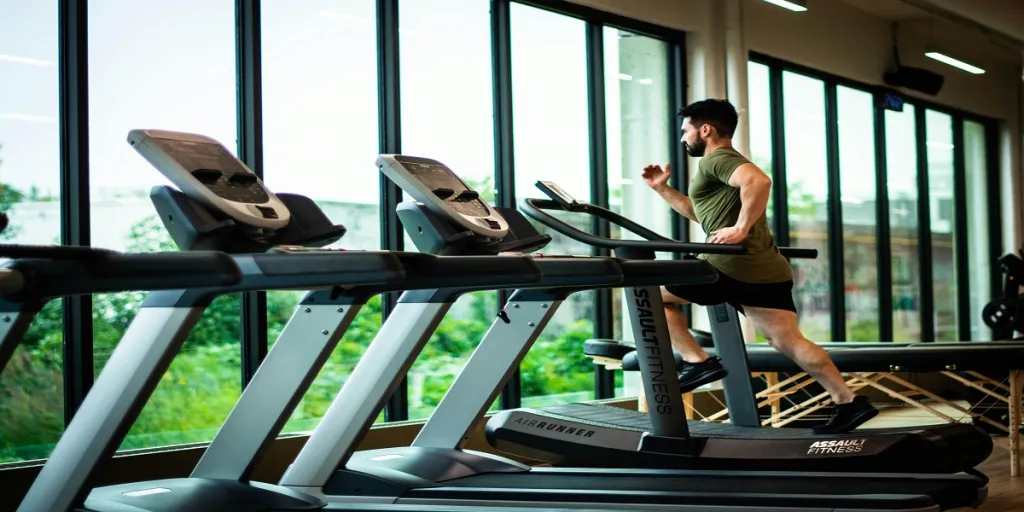Balance boards can seem like a daunting fitness tool to use at first but they are quickly becoming popular among consumers who are looking to not only improve their overall fitness but also work on their balance and coordination. Balance boards have undergone significant upgradees in the past decade or two and there is now a wide variety on the market for consumers of all abilities to choose from. Keep reading to learn more about the top types of balance boards for fitness.
Table of Contents
What is a balance board?
Global market value of fitness equipment
Top types of balance boards for fitness
Conclusion
What is a balance board?
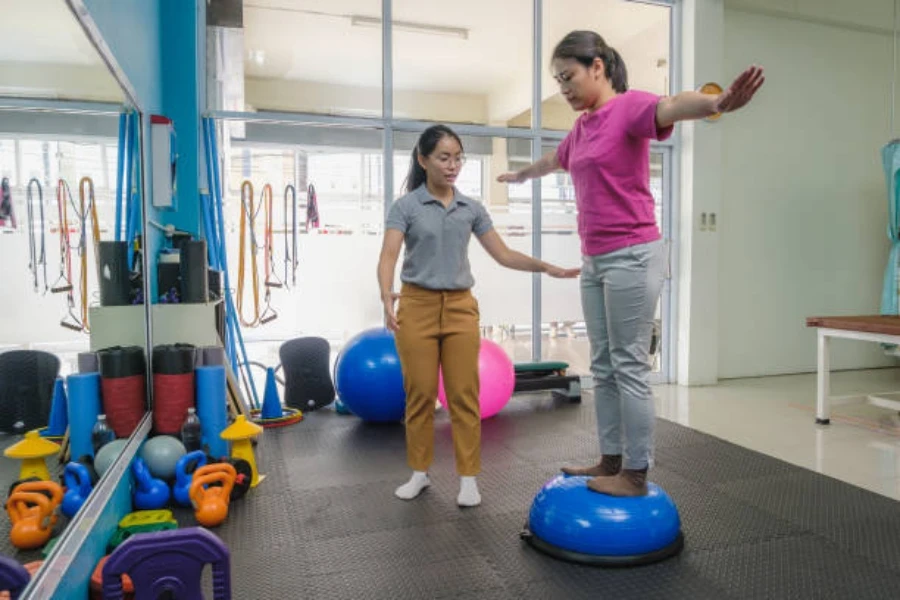
A balance board is a specialized type of fitness equipment that is designed to improve balance, stability, and core strength. They will normally have a flat surface for the user to stand on, which sits on a pivot point, requiring the user to activate their core to balance. Balance boards can also help to improve ankle stability, overall functional fitness, and even be employed by doctors to help patients rehabilitate specific parts of the body.
Global market value of fitness equipment
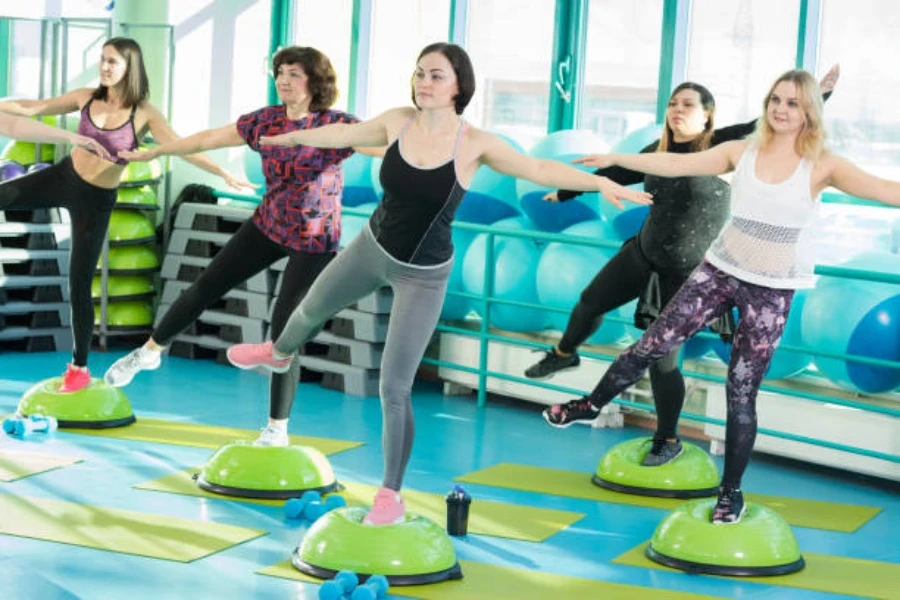
As more and more people around the world turn to healthy living, it comes as no surprise that the global market value of fitness equipment has significantly grown in recent years. In 2023, the market value of fitness equipment alone reached approximately US $16.55 billion, a figure that is expected to increase by a compound annual growth rate (CAGR) of 5.3% between 2023 and 2030.
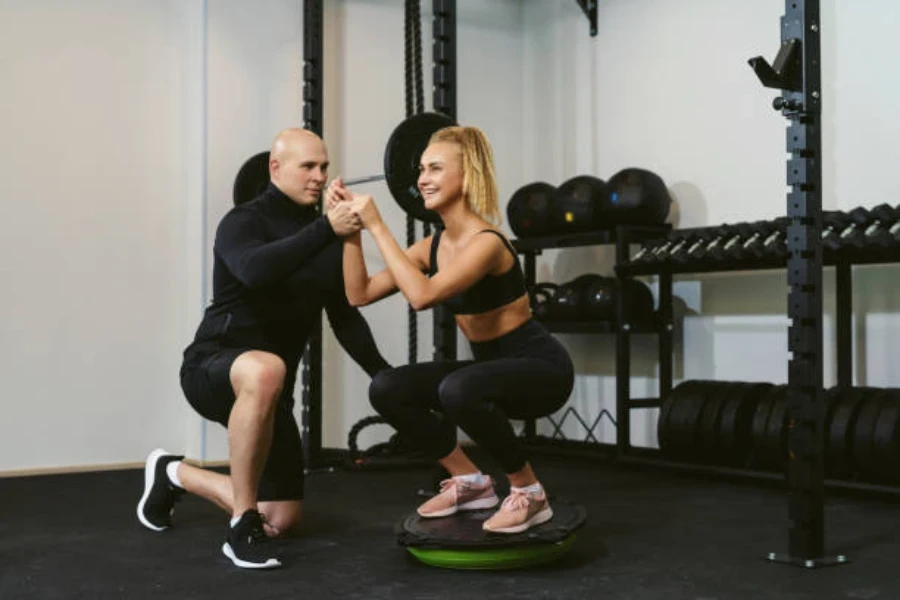
As consumers look to more active lifestyles, the rise of e-commerce platforms has helped contribute to the increased profitability of fitness equipment through easier accessibility and a proliferation of choice for consumers globally.
Top types of balance boards for fitness
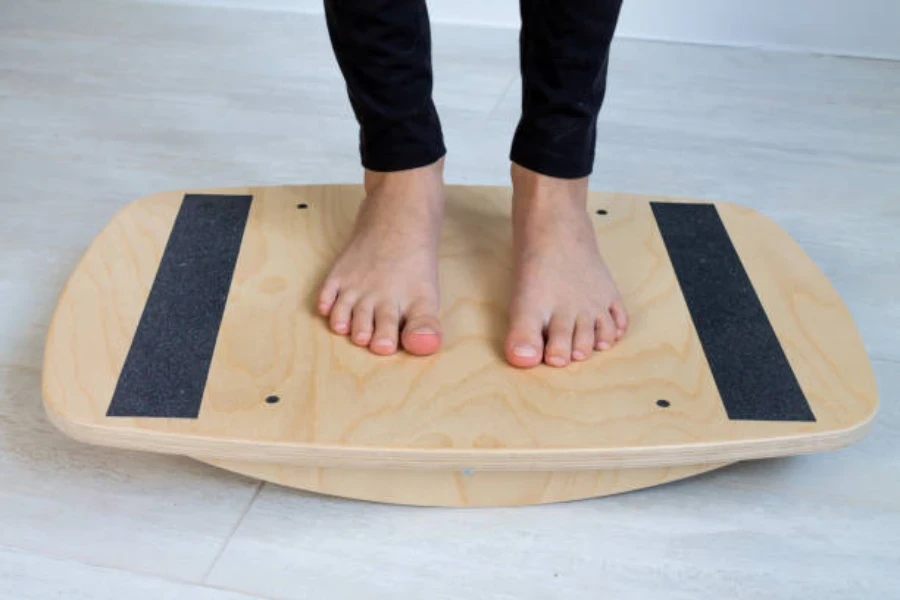
Balance boards are no longer a straightforward piece of fitness equipment, now coming in a variety of styles designed to cater to different needs of the consumer. In terms of popularity and efficiency, there are five types of balance boards that come out on top.
According to Google Ads, “balance boards” has an average monthly search volume of 301,000. When looking at specific types of balance boards, “wobble board” has a search volume of 40,500 followed by “balance pads” at 33,100 searches, “indo board” at 18,100 searches, “BOSU balance trainer” at 12,100 searches, and “electronic balance board” at 590 searches.
The wobble board has remained popular for years but, as the data shows, consumers are also on the lookout for different types of boards. Below, we’ll take a look at these different types of fitness balance boards.
Wobble boards
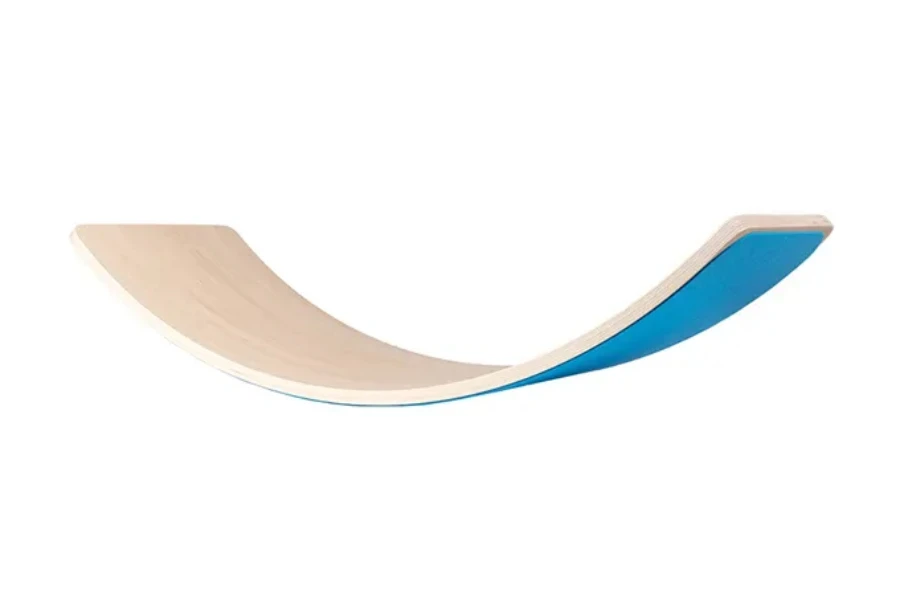
Wobble boards are one of the most popular types of balance boards for fitness available today. Also known as a rocker board, it’s partly their simplicity that continues to make them so popular among beginners. Wobble boards are made up of a rounded base that resembles a half-sphere and allows for a rocking motion, as well as a non-slip surface that not only helps the user’s feet grip the board but also prevent injuries.
The size of wobble boards can vary, which influences the difficulty level of the exercises. For example, wobble boards designed for children are significantly smaller than those for adults. Wobble boards are are often made of wood, which gives them a nice natural aesthetic as well as a sturdy frame. Other versions may be made from plastic or rubber. Due to their shape and size, wobble boards are easy to transport. Finally, their simple design makes them suitable for use among consumers of all abilities.
Balance pads
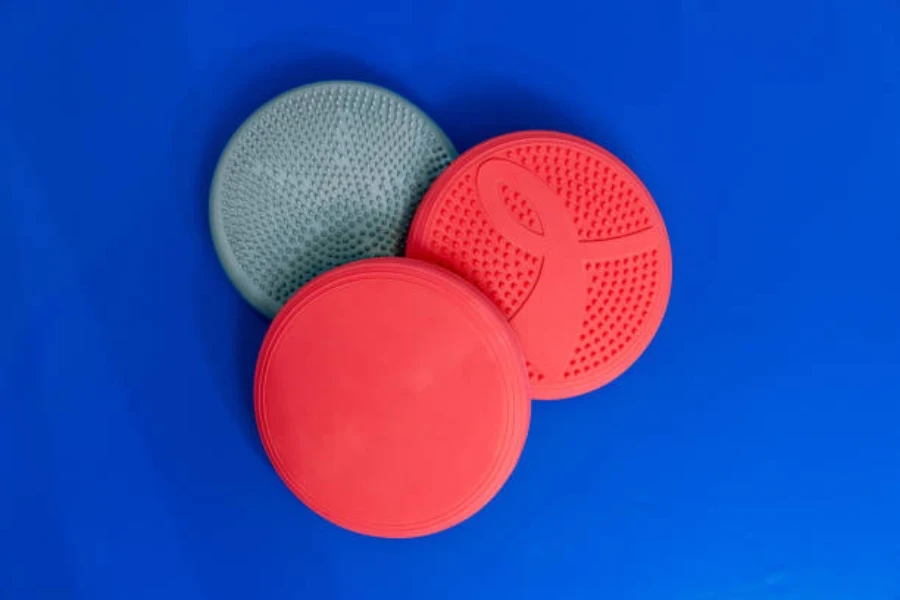
Balance pads or balance/wobble discs refer to round-shaped pads that are commonly used for either fitness or rehabilitation. They are typically made of a soft PVC material that can be inflated according to the user’s requirement. They come in a variety of sizes, while a textured surface helps provide more grip. Many balance pads are dual-sided, featuring a smooth surface and a textured surface, altering their instability and, therefore, the level of difficulty.
Balance pads can be difficult to get used to, so consumers will need to ensure that they start at a level that’s comfortable for them or that they consult with a fitness professional before attempting to use one.
Indo boards
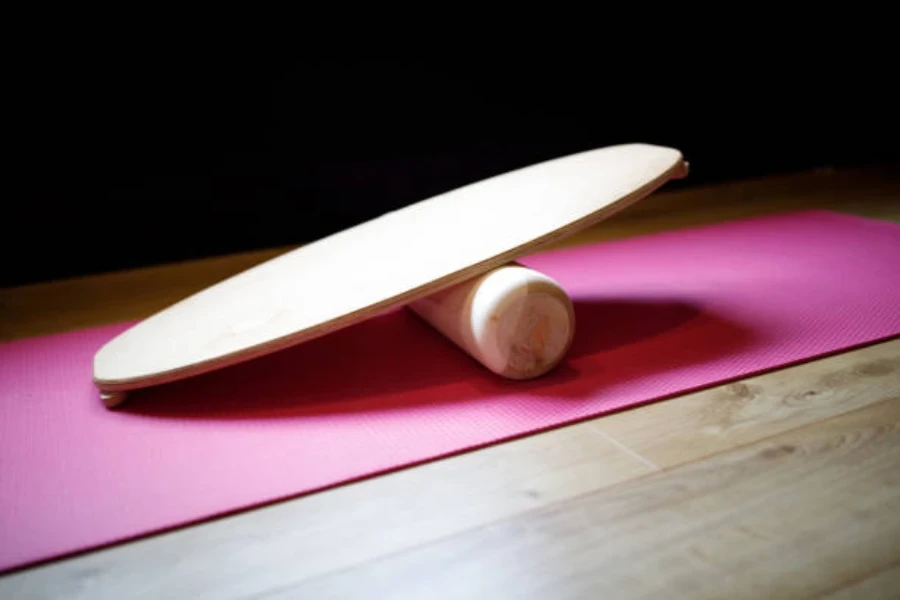
An indo board is a unique type of balance board used for both recreation and fitness routines. Indo boards are designed to mimic the motion of a skateboard or surfboard and feature a long board that sits on a cylindrical roller, creating instability and allowing the board to rock back and forth. In most cases, the roller can be adjusted to change the level of difficulty, and will come with a padded layer to improve their grip on the floor.
Indo boards are ideal for both balance and core training as they work different parts of the body, including the legs, core, and even the upper body. Compared to other balance boards, they can be difficult to adapt to and are limited in terms of the weight that can handle, something that consumers will need to take into account. They are particularly popular among surfers or skateboarders during the off season, allowing them to maintain their training.
BOSU balance trainers
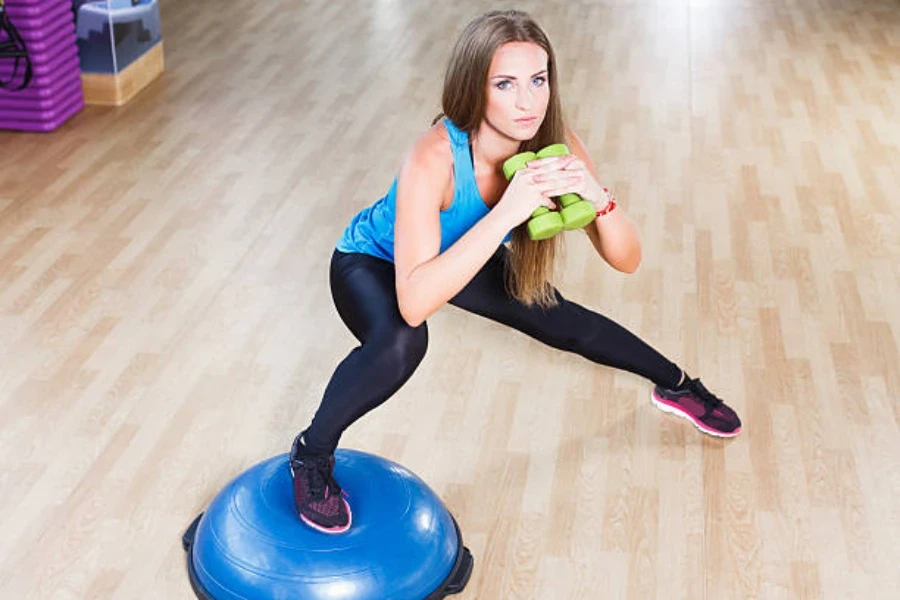
The BOSU balance trainer is a top-selling pieces of gym equipment and is designed to help improve balance and core strength. This type of balance trainer has a solid platform on the bottom with an inflatable, non-slip dome on top that the user stands on. The dome itself can be inflated to different firmness levels, adapting it to all levels of fitness. Some BOSU balance trainers also include handles for extra support or handling of a broader range of exercises.
Electronic balance boards
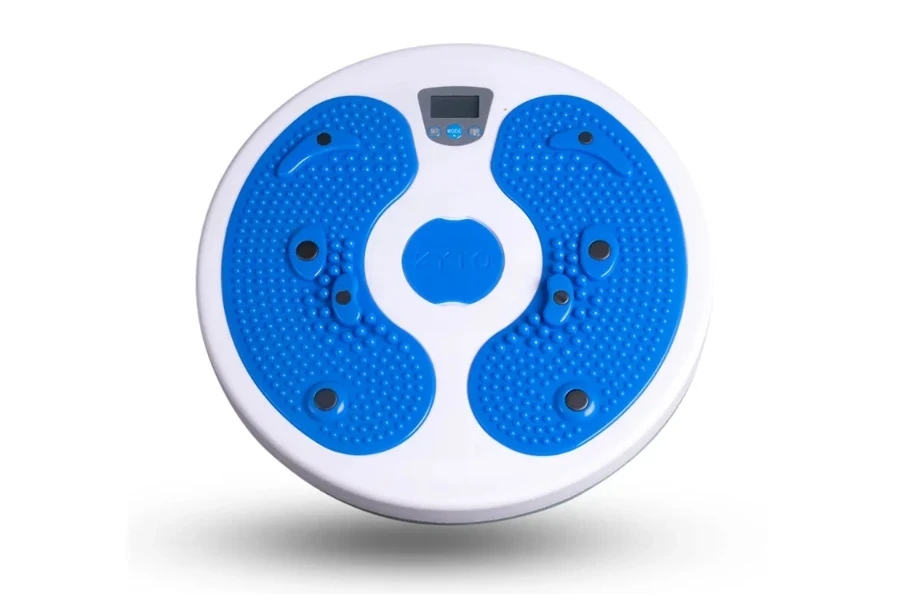
The electronic balance board, or smart balance board, is a modern version of the balance board that incorporates various advanced features for a more high-tech experience. Some electronic balance boards will include Bluetooth connectivity for app-based customization, workout tracking, and pre-saved workout programs.
More advanced electronic balance boards may include additional features such as music integration and immersive experiences, voice guidance to help with motivation, feedback on user’s balance in real-time, and even challenges to make the workout more engaging. Consumers must make sure that they own a compatible device before purchasing such a board.
Conclusion
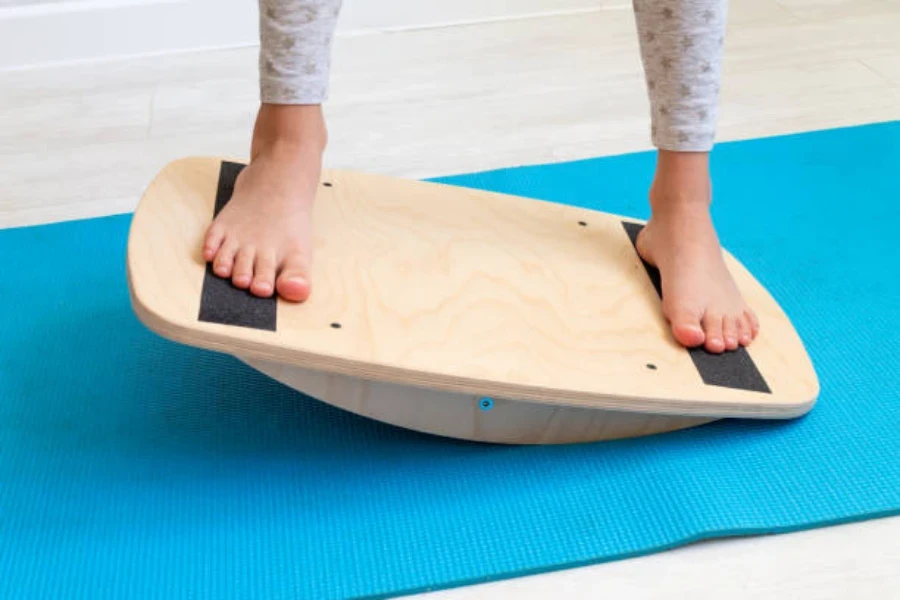
Balance boards are a unique tool for consumers to incorporate into their fitness routines, helping to build core strength and overall balance. The technology has evolved in recent years and now includes several varieties for consumers to choose from, with some even incorporating smart devices for a more interactive workout experience. While balance boards remain a popular piece of fitness equipment in the gym, they are also great for home and office use since they are very portable, lightweight, and easy to store when not in use.




